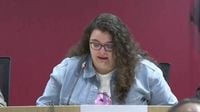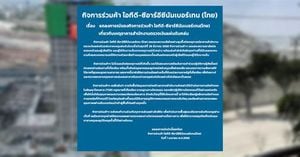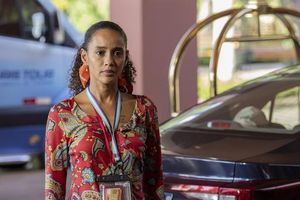Fátima Ofkir, a 25-year-old woman from L'Hospitalet de Llobregat, has returned to Barcelona after spending seven years in a women's prison in Oman for drug trafficking. Just two days after her arrival back in Spain, she publicly apologized for what she described as a "youth error" and cautioned young people about the dangers of bad company.
In her first press conference since her release, held on April 1, 2025, Ofkir expressed her gratitude and commitment to making the most of her second chance. "I will not waste this second opportunity to live, and I will serve society," she stated, revealing her plans to enroll in the Faculty of Law. Ofkir aims to help others in the same way she was helped during her difficult time.
Her journey began at the age of 18 when she was lured by a drug trafficking network in Spain. They sent her to Oman to collect a package containing seven kilograms of morphine, a decision she later regretted. "I thought it was easy money," she recalled, reflecting on her naivety. Unfortunately, her plan took a wrong turn when Omani police arrested her at a hotel, leading to a life sentence.
During her time in the women’s prison in Muscat, Ofkir faced numerous challenges. She was limited in her freedom of movement and could receive a maximum of 127 euros per month. Communication with her family was restricted to a single minute of phone time each week. "Here we have freedom of expression, but there everything is more restricted. Loneliness and fear became my companions, and I considered ending it all," she shared, highlighting the emotional toll of her incarceration.
Her case was brought to the attention of Mònica Santiago, her lawyer, who provided crucial support during her imprisonment. "She was my light. She told me, 'a little more, a little more,' and I managed to keep going," Ofkir stated, emphasizing the importance of her legal team during those dark days.
After years of advocacy from Catalan and Spanish authorities, the Sultan of Oman granted her a pardon as part of a collective amnesty following Ramadan. Spanish Foreign Minister José Manuel Albares praised the Sultan's humanity, noting the diplomatic efforts that led to Ofkir’s release.
Reflecting on her past, Ofkir described how she fell into a trap set by false friendships and bad influences. "When we are young, we think we can conquer the world, but I ended up eating the bread of Oman. I thought I was cool, but I was lost. I distanced myself from good friends and surrounded myself with the wrong people, believing they were my support and family. That was my mistake. You don’t realize it, but they lead you to hell," she warned the youth.
In her press conference, she reiterated her commitment to being a positive example for others. "The easy path always leads to the abyss, and young people should not risk their future for an illusion," she cautioned. Her story serves as a powerful reminder of the potential consequences of poor choices and the importance of resilience.
Judge Baltasar Garzón, who has been involved in advocating for Ofkir's release, described her life sentence as unjust. He noted that had her case been judged in Spain, she would have faced a sentence of only four to five years. "If the facts were known in depth, we would see that this is true, but things happen, and it has been seven years of a truncated life," Garzón stated.
Ofkir's experience in prison was marked by strict regulations, including the requirement to wear a burqa and pray five times a day. She also had extremely limited contact with her family, which she described as a source of great pain. Despite these challenges, she found solace in studying and has since learned seven languages.
Now, with her sights set on a law degree starting in September 2025, Ofkir is determined to use her experiences to advocate for others. "I want to fight for a better future for myself and for young people, to advise them not to fall into the same mistakes I made," she said, reflecting on her journey from a troubled youth to a woman committed to making a difference.
As she embarks on this new chapter of her life, Ofkir’s story resonates as a testament to the power of redemption and the importance of second chances. Her commitment to helping others and her determination to overcome her past serve as an inspiration for many.










